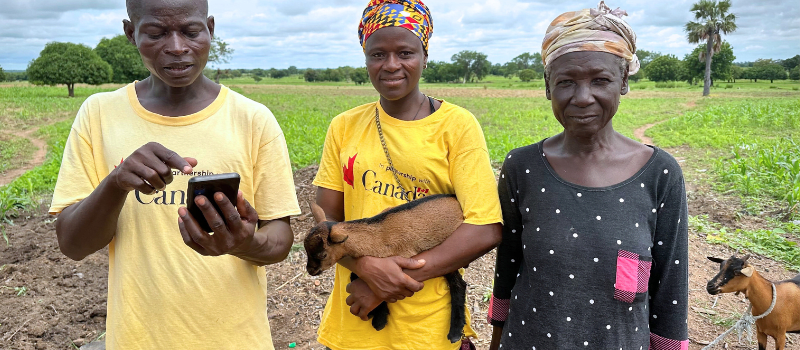In the tranquil village of Truc Mai, Lau Thuong commune, Vo Nhai district, Thai Nguyen province, Mr. Lam Van Thuan, a 55-year-old chicken farmer and the head of the Vietnamese Fatherland Front Committee, stands as a beacon of positive change in his community. With over six years of experience in poultry farming, Mr. Thuan's journey took a transformative turn in April 2023 when he became a participant in the biosecurity training offered by the VETS program in Vietnam, a collaborative effort between VWB/VSF and the Institute of Environment Health and Sustainable Development (IEHSD).

Before this training, Mr. Thuan, like other farmers in his village, was not fully aware of the crucial role that biosecurity (i.e., protocols and precautions undertaken to prevent the spread of disease) played in poultry farming. Despite attending various courses in the past, none had left as lasting an impression as the one facilitated by Ta Ngoc Sinh (DVM), a national consultant and VETS volunteer recognised for his expertise in animal health and participatory training methodology.
 The three-day training course, attended by 20 participants, proved to be significant for Mr. Thuan. It covered a wide range of essential topics, from good management practices to biosecurity measures tailored for small and medium-scale broiler chicken production. Under the guidance of Mr. Sinh, the participants delved into the intricacies of biosecurity, gaining insights that would reshape their approach to livestock farming.
The three-day training course, attended by 20 participants, proved to be significant for Mr. Thuan. It covered a wide range of essential topics, from good management practices to biosecurity measures tailored for small and medium-scale broiler chicken production. Under the guidance of Mr. Sinh, the participants delved into the intricacies of biosecurity, gaining insights that would reshape their approach to livestock farming.
One of the fundamental shifts in Mr. Thuan's perspective came in recognizing that disinfection, while important, was not the sole safeguard against disease. He learned that segregation and access control are crucial in preventing the spread of illnesses within poultry farms, and that cleaning and sanitation must precede disinfection. Moreover, the training equipped Mr. Thuan with precise details, such as the recommended dosage of disinfection solution—0.3 liters per square meter. Mr. Thuan embraced this practical knowledge and committed to apply it with care and accuracy in his daily farming operations.
The impact of the VETS program on Mr. Thuan's knowledge and practices have been significant and newfound appreciation of biosecurity has translated into tangible changes on his farm. Implementing the techniques acquired during the training, he has elevated the biosecurity measures in his poultry farm, creating a healthier environment for his chickens.
In fact, recognizing the potential for widespread positive change, Mr. Thuan embraced his role as a community leader, and pledged to share his newfound knowledge with fellow farmers. In doing so, he has become a catalyst for the dissemination of best practices in poultry farming throughout Truc Mai village. In Mr. Thuan's own words, "I have become more aware of the importance of biosecurity and have started implementing the techniques I learned in the training course. I understand now that biosecurity is not just a component of poultry farming, it is fundamental to the sustainability of the industry.”
Overall, Mr. Thuan's story underscores the far-reaching impact that targeted training can have on individual farmers and entire communities. It also emphasizes the importance of continuous education for Community Animal Health Workers and farmers to ensure they know best practices in poultry farming. Through the VETS program, Mr. Thuan has not only transformed his own approach to poultry farming, but he has become an inspiration for others, fostering a ripple effect of improved biosecurity in the vibrant landscape of Vietnamese agriculture.

VETS is a 7-year initiative (2020-2027) to improve the economic and social well-being of marginalized people, particularly women and girls, in 6 countries across Africa and Asia. In collaboration with local partners, the program is implemented through 190 Canadian volunteers on international assignment and is generously funded by Global Affairs Canada.




